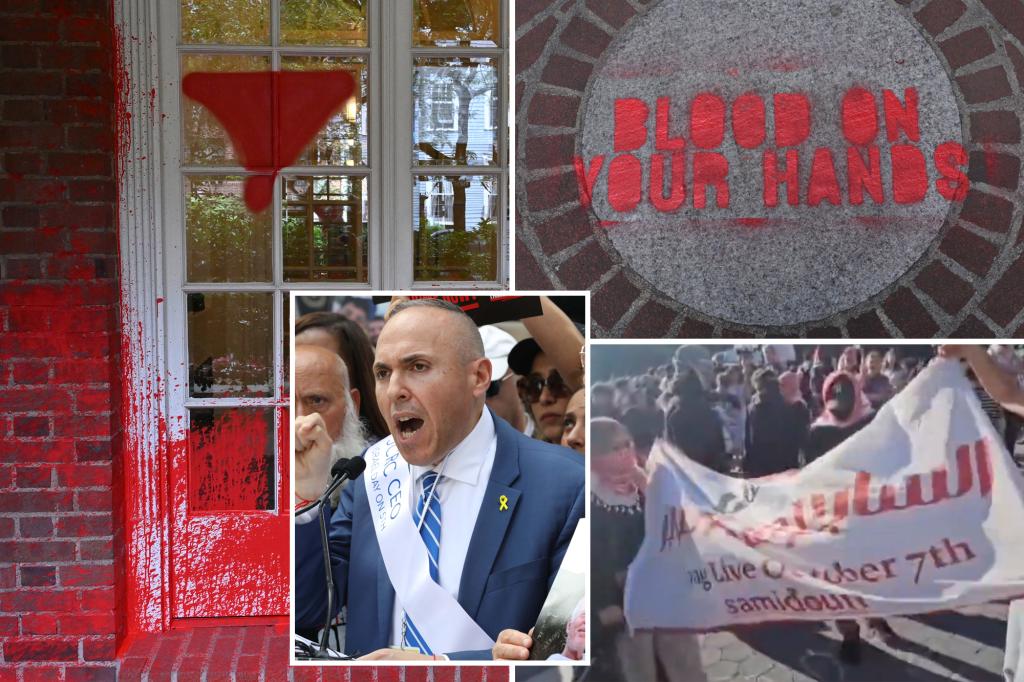Jewish leaders in New York have expressed deep concern over the escalating levels of antisemitism in the city, with some even comparing the situation to what occurred in the 1930s during the rise of Nazism. The recent incidents of red paint splattered on the homes of a museum director and Jewish board members, along with the use of a red triangle symbol that Hamas uses to denote targets marked for death, have raised alarm bells among the Jewish community. Former president of the Queens Jewish Community Council, Michael Nussbaum, drew parallels between these acts and what the Nazis did in the 1930s, highlighting the seriousness of the situation.
Mark Treyger, the head of the Jewish Community Relations Council, has labeled the current state of antisemitism in New York as a “crisis” and an “emergency.” He stated that the tactics being employed against Jews in 2024 resemble those used by the Nazis in the 1930s to disassociate Jews and Jewish identity from various aspects of society. Matthew Schweber of the Columbia University Jewish Alumni Association compared the actions of the pro-Palestinian movement in the city to a modern form of the Ku Klux Klan, dismissing their protests as protected under the First Amendment due to targeted harassment and incitement of violence.
Brooklyn Councilwoman Inna Vernikov, a Republican who is Jewish, expressed her belief that New York reached a “crisis point for antisemitism” a long time ago, characterizing the current climate as a frightening one for Jews. She raised concerns about the possibility of violence against Jews in the streets if the situation continues to escalate. Vernikov highlighted instances of brazen behavior by anti-Israel protesters in the city, such as displaying provocative messages in public spaces and making intimidating statements towards Jews.
The atmosphere of antisemitism in New York has led to a sense of fear and unease among the Jewish community, with reports of protesters chanting “No Zionists” being interpreted as a call for the elimination of Jews from the city. Vernikov expressed concerns that the current situation may prompt Jews to leave New York and seek refuge in Israel, emphasizing the need for strong leadership to address and combat antisemitism. Instances of anti-Israel sentiment and hateful rhetoric directed towards Jews in public spaces have further exacerbated tensions, leading to a sense of vulnerability among the Jewish population.
The rise of antisemitism in New York has triggered alarm among Jewish leaders, who fear a repeat of history similar to the dark days of the 1930s and the persecution faced by Jews during that time. Leaders have highlighted the need for immediate action and strong leadership to address the issue and prevent further escalation of antisemitic behavior in the city. The current climate has caused significant distress and fear among the Jewish community, with concerns about safety and security becoming a top priority. Efforts to combat antisemitism and protect Jewish identity in New York are crucial in ensuring the well-being of the community and upholding values of tolerance and respect.


